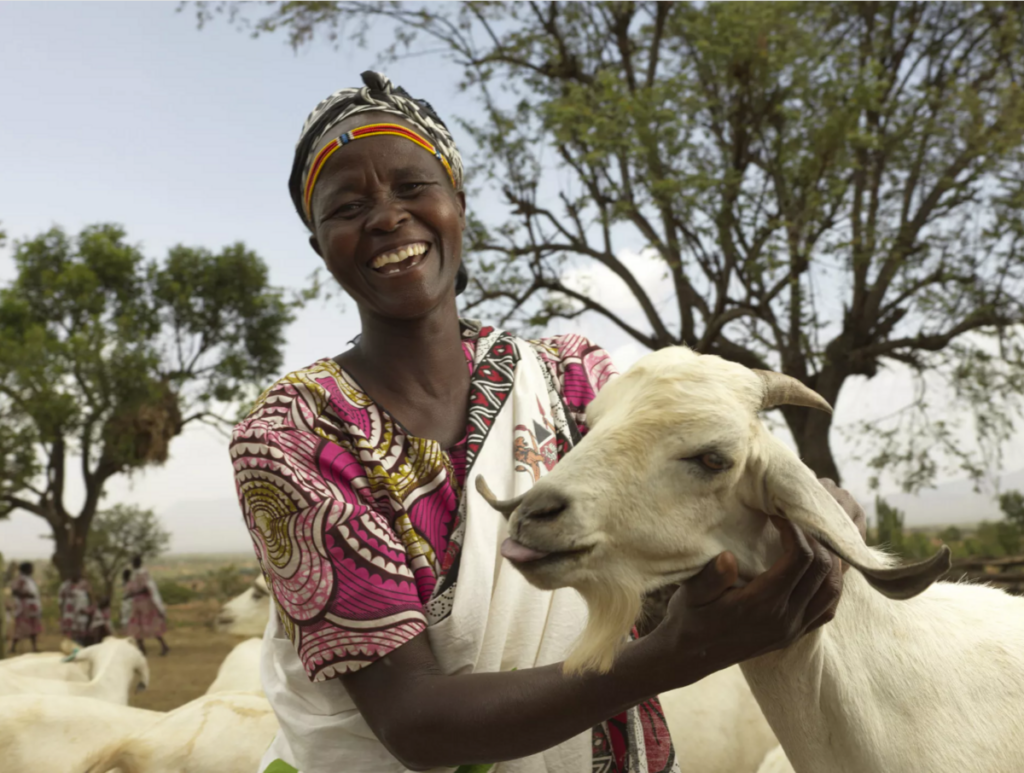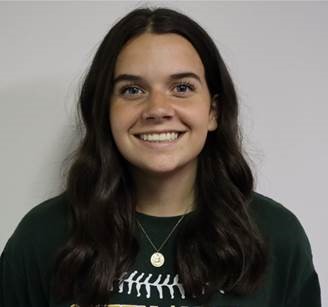Around the world, communities face a multitude of challenges that prevent them from reaching their full potential. Yet through partnerships between charities and community members, organizations like Action Against Hunger, Church World Service, Oxfam America, and Unitarian Universalist Service Committee (UUSC) work to tackle these issues. By empowering local residents and supporting community-driven initiatives, these organizations are fostering resilience, improving livelihoods, and creating sustainable solutions where they are needed most.
Continue reading to learn how community collaboration is changing lives in Kenya, Hungary, and Honduras. Then, consider making a donation in your workplace giving campaign today to support their vital work. Your contribution can help ensure that more communities gain the tools and resources needed to build a better future. Together, we can make a difference and empower communities to thrive.
Action Against Hunger
It all started when Action Against Hunger trained the women of Kapkitony in northwestern Kenya on new ways to earn income. The women came up with the idea of starting a goat business, and Action Against Hunger provided seed funding to make it possible.
“We requested some support so we can buy goats and we can continue to have milk. . . This milk would improve our nutrition,” said Rosalyn, a member of the local mother-to-mother support group and the group’s goat-keeper. Goat milk is rich in Vitamin A, protein, calcium, and phosphorus. “I love goat-keeping a lot. . . First, I can get milk. Second, when I sell these goats in the market, they fetch higher prices compared to the other goats. Third, the manure from the goats helps me with my garden. So, I don’t need to spend more money on buying fertilizers.”
Action Against Hunger’s mother-to-mother support groups learn from each other and reap the benefits from their goat-keeping business. Three years ago, the women of Kapkitony lacked this common ambition. The goats are the key to unlocking women’s dreams.
“Before, we were just like normal women in the village. We didn’t have knowledge of how we can expand our minds to even start a business,” said Rosalyn. “When Action Against Hunger came, that’s when our minds opened up. This is why we are now thinking in terms of buying goats to empower ourselves as women.”
“It is through Action Against Hunger that the government is even adding 22 goats on top of the 30 we have. All this, because the government has seen the work we are doing through Action Against Hunger. . . Our future plan is to buy some land to expand the goat business. And we have plans in the future of getting land in the town where we can maybe build a guest house using the money we get from the goats,” said Rosalyn. “Action Against Hunger came and made us stronger through knowledge.”
Action Against Hunger plants the seeds of development and provides communities with a new way of innovating. With the transfer of knowledge, the women of Kapkitony have gained the confidence and skills to pursue larger goals, reshaping their livelihoods and futures. When development comes from a community, for a community, it transforms living conditions for generations to come.
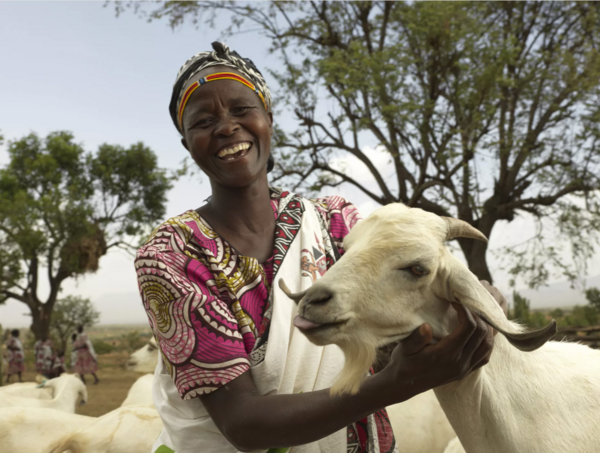
Unitarian Universalist Service Committee
A UUSC partner since 2015, the Hungarian Helsinki Committee (HHC) is the largest, oldest, and, currently, only non-governmental organization in Hungary providing individualized counseling and legal representation for asylum seekers and refugees.
Drawn to the work of promoting human rights from a young age, senior legal officer and legal coordinator of the HHC’s Refugee Program, Zsolt Szekeres, ultimately decided that practicing law in his home country of Hungary was where he could make the most impact. “Already at that time it was quite clear the direction that the country was going to take,” says Zsolt, “It was drifting away from the ideas of a progressive and inclusive society and moving toward a more restrictive one when it comes to universal human rights and the rights and liberties of historically excluded groups.”
Now, the influx of more than a million people fleeing the war in Ukraine and seeking refuge in Hungary has increased the number of people needing the HHC’s services exponentially. Zsolt says that the invasion of Ukraine transformed their work almost overnight as Hungary became a first nation of arrival for the people fleeing directly from a war-torn country. “Because of the consistent policies of the government before [the war in Ukraine], the asylum authority and the police were simply not in an adequate form and shape to respond in a humane and human rights sensitive manner to the large number of people crossing the Hungarian border. So, we very quickly realized that we are the only organization in the country who can provide large scale information and in-person legal counseling for people about their rights and possibilities.”
Because of the strength of UUSC’s relationship with HHC, forged over many years, UUSC was able to respond quickly to the crisis in Ukraine by providing an emergency grant to the HHC.
More than just monetary support, UUSC offers solidarity. This became especially important as the Hungarian government attempted to stop HHC from operating. “We were in dire need of any assistance and help both in terms of publicity, moral support, and financial support for the activities that carry out the protection of asylum seekers and the general rule of law in Hungary,” says Zsolt. “It was very uplifting for us that our partners, including UUSC, did not abandon us in this fight. The response that we got, including from UUSC, was that despite the government’s clear efforts to shut us down, you will stand behind us and keep supporting the important work that we do. Under such circumstances our voice, our commitment, and our uncompromising attitude toward human rights really makes a difference.”
With the backing of UUSC, HHC has been able to not only offer immediate legal assistance but also stand strong against governmental efforts to limit their work. By providing both financial aid and moral support, UUSC has empowered HHC to navigate challenges with resilience, ensuring that the voices and rights of the most vulnerable are not silenced.
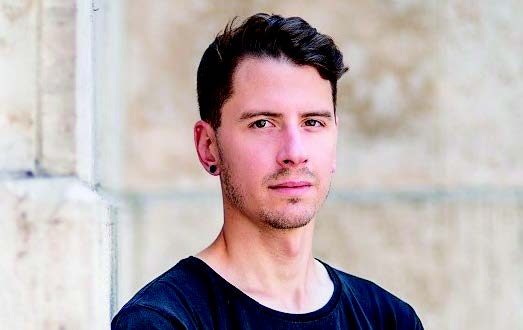
Church World Service
In the village of Pinabete, located in rural Honduras, a shared cause brought the community together: the right to clean water. Leader Elías Pérez took on the challenge of engaging in political advocacy and not only succeeded in persuading the local government to grant permission to use a water spring they found near the community but also secured resources to build the necessary infrastructure and connect that source to everyone.
In the course of his work, he partnered with the team from the Mennonite Social Action Commission (CASM) and became one of the participants in a project aimed at improving people’s living conditions through the provision of agricultural supplies and training. In addition to the supplies, Elías received support for the construction of a latrine for his family. Through CASM, in coordination with local authorities and the financial support of Growing Hope Globally, they managed to allocate resources to purchase pipes, valves, and cement. The project, which starts next year, will grant access to clean water for about 300 community members.
César Yovani Soriano, from the CASM team, shared, “For CASM, providing quality and safe water supply to families is a priority. Don Elías is an important connection because he is leading the local water boards; he helps us identify the needs of the communities and manage resources from the local government.” The program also provides the most vulnerable families with latrines. Through collaborative efforts and the assistance of CASM, Pinabete has transitioned from a community struggling for water access to one empowered with the essential resources for a better life. Don Elías concluded by saying, “We have to sow because what I sow in this land is how everyone will remember me. That is my wish, to leave well-planted traces.”
Church World Service partners with those local to an area to understand the needs of the communities better. Through this collaboration, they can address those needs more efficiently and improve the quality of life for hundreds of people.
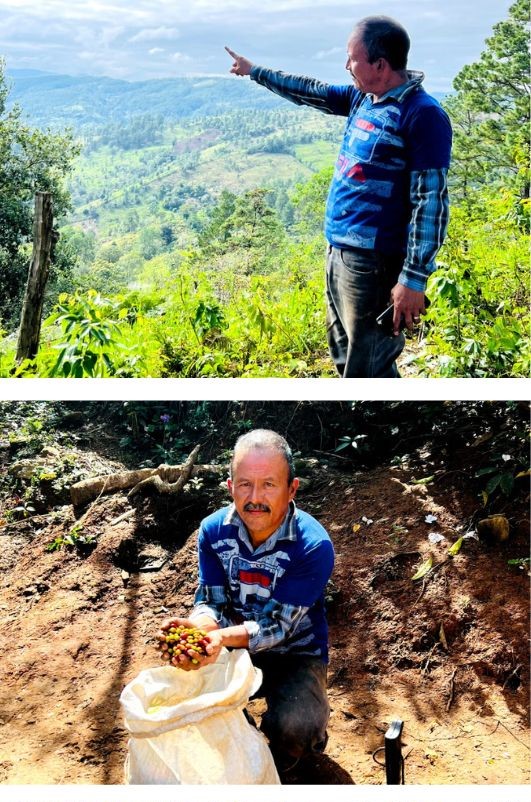
Oxfam America
Veronica Wambui, a water vendor in Korogocho, Kenya, was faced with a stark reality when the pandemic hit. Members of her community — an informal settlement with little infrastructure — could no longer pay for water, which put her livelihood at risk. But Wambui soon learned that Oxfam partner Koch Hope was providing water to her settlement as part of its COVID-19 response and needed vendors. Wambui signed on as a contractor, which not only kept her business afloat, but also allowed her to provide an essential service to her community.
Oxfam and Koch Hope began this work in April 2021 as part of a project called Tuko Pamoja (We Are in This Together). Tuko Pamoja is part of a larger effort supported by #StartSmall, a philanthropic initiative launched by Jack Dorsey, Block Head, Chairman, and cofounder of Block Inc. In the last year, funding from #StartSmall supported projects to address food security, health and hygiene, and livelihoods in Kenya and Burkina Faso.
Through a voucher system, people in Wambui’s community secured a larger volume of clean water than before — up to four jerrycans per day for three months. Wambui’s cash flow improved so much that she was able to open a bigger shop. “l was able to pay school fees… for my child and put food on the table without much struggle,” she said.
By empowering local vendors like Veronica, Oxfam not only provided essential services to vulnerable communities but also created a sustainable model for economic recovery and growth. This approach showcases the importance of community-driven solutions, where local expertise and support can drive lasting change and resilience in times of crisis.
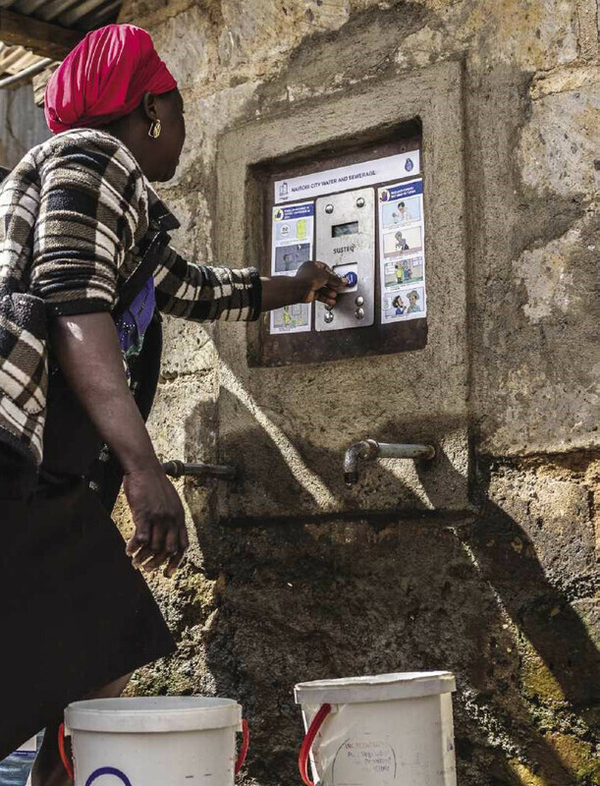
To support the ongoing collaboration between charities and communities in creating lasting change, consider making a donation to one of these charities in your workplace giving campaign today.

